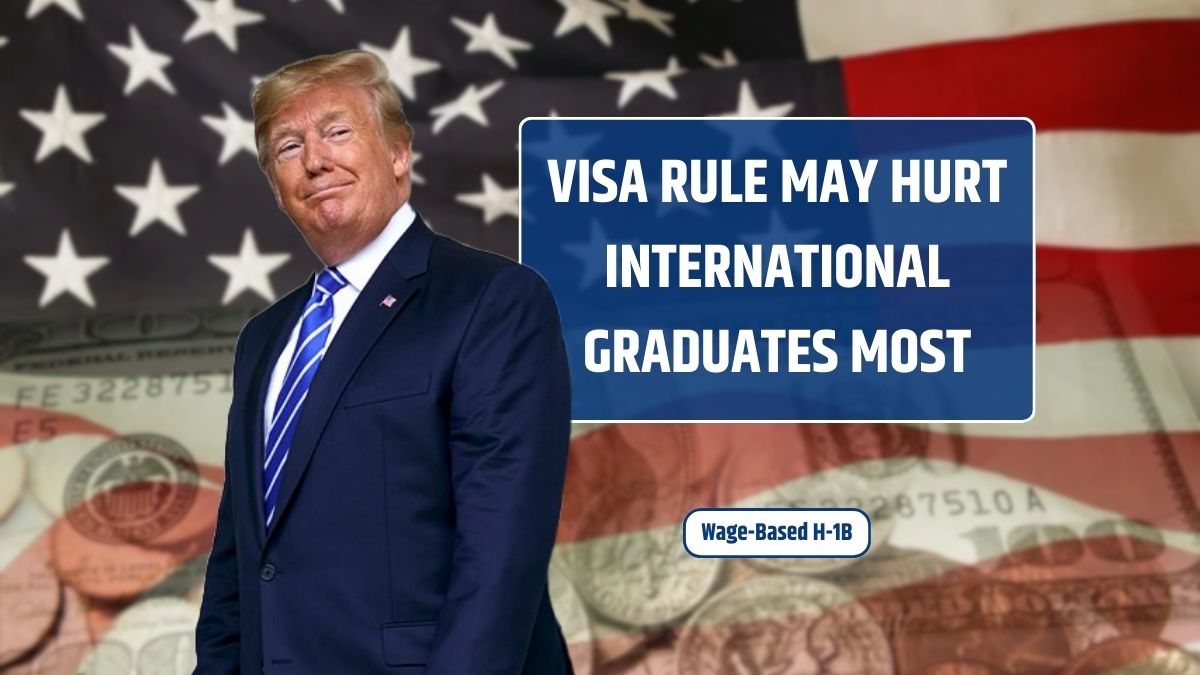The future is looking more uncertain for international students in the US as the government considers scrapping the H-1B visa lottery in favor of a wage-based system. Instead of the current random selection, the proposed system would prioritize visa applicants based on how much they’re paid, giving higher-salaried jobs an edge.
For recent graduates and entry-level workers—especially those just stepping into the US workforce—this could spell trouble. Here’s what the change means, who’s most affected, and how students and universities are preparing.
Proposal
The H-1B visa has long been a key pathway for international students to stay and work in the US after graduation. Right now, all eligible applicants get a fair shot through a lottery system, no matter what their salary is.
But the proposed wage-based selection flips that logic. Instead of a level playing field, it would give preference to higher-paying jobs. The stated goal is to prioritize roles that supposedly offer more economic value and to discourage employers from hiring cheaper foreign labor over US workers.
Disadvantage
This change could hit fresh international grads the hardest. Why? Because entry-level positions typically don’t come with high salaries—especially in competitive industries or startups. That means these candidates may drop to the bottom of the selection list, regardless of their education, potential, or qualifications.
It’s not just liberal arts majors or non-STEM students who could lose out. Even graduates in science, technology, engineering, or math could struggle if their first job offer doesn’t meet the wage threshold. It’s no longer about merit—it’s about money.
Pressure
This creates serious pressure for students and employers alike. Students may feel forced to push for higher starting salaries—no easy feat when you’re fresh out of college, building experience, and networking from scratch.
At the same time, employers—especially smaller companies and nonprofits—may not be able to afford premium wages just to meet visa criteria. That means they might avoid hiring international students altogether, further shrinking job prospects.
Alternatives
So what options are left for international grads?
Here are a few possible routes:
| Visa Option | Details |
|---|---|
| OPT/STEM OPT | Allows temporary work post-graduation (up to 3 years) |
| O-1 Visa | For individuals with extraordinary talent or awards |
| Green Card | Requires employer sponsorship, long timelines |
| Other Countries | Canada, Australia, or EU nations offer easier pathways |
While these options exist, they come with limitations. The O-1 visa has strict requirements. Green cards take time. OPT is a good bridge, but it doesn’t solve long-term residency concerns. More students may start looking beyond the US entirely.
Support
Universities are stepping up in response. Many are expanding career services and international student resources. You’ll find more workshops on salary negotiation, immigration alternatives, and job search strategies tailored to this new reality.
Student advocacy groups are also getting involved—pushing back on policy changes and helping their peers understand the system. Some schools are even partnering with immigration lawyers to offer free legal clinics and info sessions.
Advice
So what should students do right now?
Here’s how to stay ahead:
- Make sure your resume stands out—now more than ever
- Research industries and roles with competitive starting pay
- Learn how to negotiate salary without pricing yourself out
- Get legal advice early, especially during your final year
- Build a job search strategy that includes backup plans, just in case
Adaptability is key. With the H-1B route becoming tougher, having multiple paths in mind can make all the difference.
The wage-based H-1B system isn’t law yet, but it’s already shifting how students plan their careers and how employers approach hiring. For international graduates, this may mean adjusting goals, rethinking timelines, and using every available resource to stay competitive in a salary-first visa world.
FAQs
What is the wage-based H-1B system?
It prioritizes visa applicants with higher salaries over a random lottery.
Who is most affected by the change?
Entry-level international students with lower starting salaries.
Is the new system already in effect?
No, it’s still a proposal under consideration.
Can I still apply for OPT or STEM OPT?
Yes, those options remain available and are widely used.
Are there other visa options besides H-1B?
Yes, such as O-1, employer green cards, or work visas abroad.




